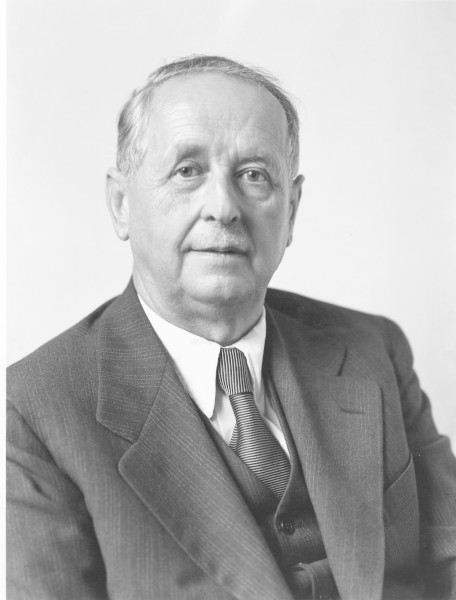Born near Hamburg the son of a bank director, Hermann Weyl (1885–1955) studies mathematics in Göttingen, receives his doctorate there, is promoted to professor and is regarded to be the most distinguished student of David Hilbert. In 1913, Weyl receives a professorship at the Swiss Federal Institute of Technology (Eidgenössiches Technisches Institut) in Zurich; in 1930 he succeeds Hilbert in Göttingen, emigrates from Germany in 1933 and receives a position at the Institute for Advanced Study in Princeton.
Weyl’s wide-ranging mathematical works can be separated into three main categories: Problems of pure mathematical nature in the spirit of Hilbert’s school, number theory and mathematical physics. In 1918 he publishes Space-Time-Matter, one of the first books about the general theory of relativity. His book Group Theory and Quantum Mechanics from 1928 is probably his most influential contribution to modern physics. He is also concerned with the philosophical problems of mathematics and mathematical physics.
 Scene
Scene


 1st Slide
1st Slide
 Branching Point
Branching Point
 Module: Relativitaetstheorie: Vereinheitlichte Feldtheorie
Module: Relativitaetstheorie: Vereinheitlichte Feldtheorie Sequence: 0.0. START Vereinheitlichte Feldtheorie
Sequence: 0.0. START Vereinheitlichte Feldtheorie Branching Point: The Search for the Unity of Nature
Branching Point: The Search for the Unity of Nature Slide: Criticism of the
Slide: Criticism of the 

